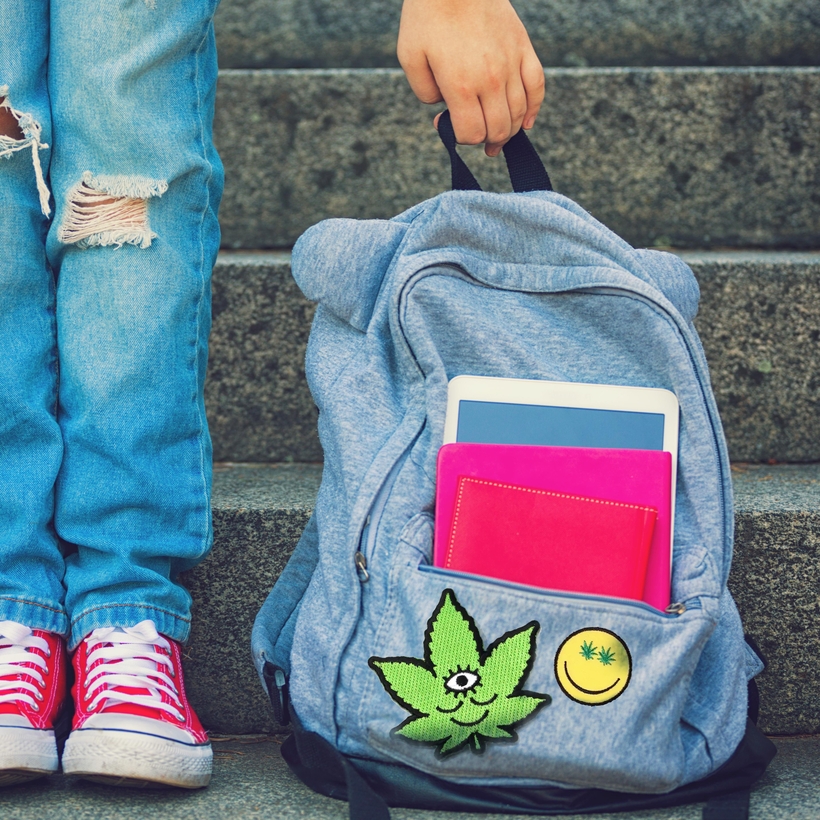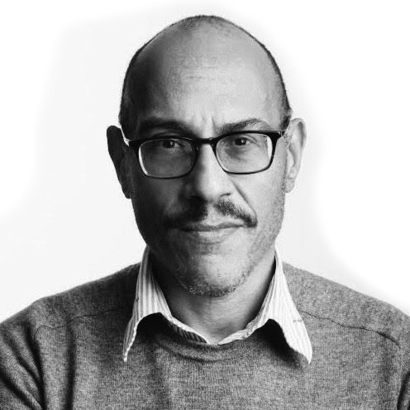The diagnosis of a child with autism has been described by some families as almost like experiencing a type of death. But an unlikely treatment is helping bring even the most severely autistic kids magically, almost mystically, back to life. That treatment—an herb long renowned for its medicinal properties—is actually not so mystical at all: cannabis.
Indeed, regardless of whether marijuana is legal in their state or still criminalized, parents are now using cannabis, both in CBD and the more potent THC forms, to help combat a battery of autism symptoms. They aren’t just handing their kids joints and telling them to “toke up.” Rather, working with doctors, ganja growers, legislators, and other families, they’re harnessing the calming powers of cannabis to give their kids a chance at ultimately healing themselves.
It’s a risky endeavor. Not only is the data around pediatric cannabis consumption still heavily scrutinized, but, depending on where they live, parents scoring the bud can face arrest, imprisonment, and even the loss of custody of their children. “Cannabis isn’t necessarily harmless, but you must weigh the [impact of autism] on the entire family dynamic,” explains Dr. June Chin, an integrative medical-cannabis physician in Manhattan, where the plant is now legal. “I work closely with parents to help them in this process, because ultimately we believe that parents know what is best for their children.”
To be clear, cannabis doesn’t “cure” autism, which affects roughly 1 in 44 eight-year-old American children, who, according to the C.D.C., may be treated but never fully cured. Rather, cannabis “slows down short-term memory formation” in autistic children, whose brains are overloaded by stimuli, explains author Marie Myung-Ok Lee, whose 22-year-old son, Jason, was one of the first autistic kids to be treated with marijuana, back in 2008.
That “slowdown,” adds Professor Ilan Dinstein, director of the Azrieli National Centre for Autism and Neurodevelopment Research at Israel’s Ben-Gurion University of the Negev, “calms autistic kids with aberrant behaviors [such as tantrums or violent outbursts] and makes them more approachable and available for … treatments and interventions.” As Georgia parent Dale Jackson describes it, autistic kids such as his son Colin are bombarded by psychological stresses that cloud out their ability to engage with basic tasks. “But using cannabis,” Jackson says, “is like ‘taking the earphones off’ so he can actually process what we are trying to teach him, such as learning to tie his own shoes.”

Lee, a writer-in-residence at Columbia University and the author of the new novel The Evening Hero, came to cannabis almost by chance. Diagnosed with autism as a toddler, her son endured years of both violent rages and heavy-duty medications to control them. By the time he reached adolescence, the family “was in a real crisis situation,” Lee recalls. Jason’s behavior continued to decline even as his drug dosages, along with their serious side effects, kept creeping up. “All I could think about is how I could help this poor child, who was so clearly in distress.”
A brief anecdote about the therapeutic powers of cannabis in Michael Pollan’s 2001 book, The Botany of Desire, convinced Lee that cannabis could possibly relieve her son’s condition. She was lucky: Rhode Island, where the family then lived, had recently decriminalized medical cannabis, and Lee, then teaching at Brown University, was able to spend time with a medical-marijuana patient group that met on campus. Within weeks she was convinced that cannabis could help Jay, who, at the age of nine, soon became the youngest person in Rhode Island, if not the entire nation, with a medical-marijuana license.
“There was a lot of stigma around giving pot to kids back then, so I had to do it legally,” Lee says. “There was no way I was going to go out and buy pot on the street,” she continues. “I was afraid of being arrested and having Jay taken away from me.” Armed with Jay’s license, Lee found a cannabis supplier (“a local grower, obviously organic”) and began baking cookies laced with marijuana.
Doctors and #Cannamoms
Like many parents in her situation, Lee tested the cookies’ potency and efficacy on herself to prevent her son from overdosing. “Parents are very resourceful; if they can’t find a doctor to help, they try to figure out dosing levels on their own,” says Dr. Chin. After a year of experimentation, Lee hit upon the right bud-to-batter ratio, and her son’s autism symptoms began to improve—dramatically.
He was far calmer and slept better, and his appetite increased, as did his self-confidence and self-control. Once unattainable milestones, such as riding a bike, were reached. And, Lee says, “he began to smile, something that had been missing for years.” A decade on, Jason is still taking cannabis daily, and while he remains autistic, he is able to plan for an independent future. “Cannabis is really allowing this kid to lead his best life.”
This kind of “best life” thinking has fueled an increasingly wide range of clinical studies in hopes of proving cannabis’s effect on autism and, eventually, convincing governments to fully legalize its usage. In Israel, for instance, Professor Dinstein is tracking hundreds of autistic children being treated with cannabis, 50 percent of whom, he says, are showing improvement, “particularly in social communication … and with [reducing] aberrant behaviors.”
Armed with state funding, Israeli researchers have taken an unlikely lead in research surrounding cannabis and autism. Dinstein’s current work, for instance, complements studies from Ben-Gurion University in 2019 and Jerusalem’s Shaare Zedek Medical Center in 2017, both of which also produced promising results. Here in the U.S., the University of California San Diego’s Center for Medicinal Cannabis Research is examining CBD-based pediatric-autism treatments, while in New York, a trial focused on children and teenagers with autism was conducted at Montefiore Health System, funded by the Department of Defense.

As academics and policymakers await more data, many parents remain focused on simply buying bud without the risk of arrest. For the moment, cannabis is legal for either recreational or medical use in 39 states nationwide. But many states don’t include autism on their list of “approved” conditions or have approved cannabis products whose THC levels are too low to adequately treat autistic kids. As a result, some parents have resorted to extreme measures to help care for their children.
Jackson’s son Colin, for instance, suffers from autism so severe he’s completely nonverbal. For the past seven years, Jackson has treated his son several times a day with cannabis-infused oil obtained, he says, “on the local black market.” Like Lee, Jackson tests the cannabis’s potency on himself. “[It] has made an overwhelming difference in my son’s life,” he says.
Although medicinal marijuana oil has been legal in Georgia since 2015, the licenses to grow and distribute cannabis in the state have been mired in bureaucracy, and purchasing pot in other states is illegal for state residents. “You know where I end up?,” Jackson told a Georgia House committee. “About a block and a half from [the state capitol], buying my son’s medicine from a drug dealer.”
Frustrated by state inaction, Jackson, who runs a heating-and-air conditioning-services company and has served as a local Republican Party chairman, has become an unlikely cannabis activist and a regular presence at the Georgia State House, in Atlanta. Using contacts established through his Party connections, Jackson lobbies legislators to both formalize those licenses and approve an increase in legalized THC levels to more effectively treat kids like Colin. “There are thousands of parents out there suffering in silence because they lack the political connections or financial resources or sheer craziness to do what I do,” Jackson said.
Jackson is among a nationwide tribe of cannabis advocates and activists who are trying to use science to reduce the stigma that many in the autism community associate with cannabis. Some, such as CNN’s Dr. Sanjay Gupta, have taken their message straight into America’s living rooms. Others are more grassroots, such as the #cannamoms active on social media. Then there are the “cannabis outlaws,” who have formed underground supply chains to help support—and supply—families in states where cannabis is still illegal. Whatever their methods or motivations, all are committed to treating children’s autism by any means necessary.
Yet some medical and behavioral scientists remain not just unconvinced of its efficacy but worry it could actually cause harm. “What we really need to do is slow down here,” cautions Professor Thomas Zane, director of online behavior analysis programs at the University of Kansas, who’s written about autism, cannabis, and children. “Maybe marijuana works, maybe it doesn’t,” he continues, “but from a purely scientific basis, there is just no evidence that this drug is causally related to any improvements in developmental, behavioral, or academic measures.” Studies suggest that marijuana can “also interrupt the brain development of young people,” he adds.
Even with the risks and unknowns, parents at the front lines of the autism-cannabis debate insist the improvements in their children’s quality of life are proof enough for them. “Cannabis should be a first-line treatment for autism,” Lee says. “Every child has a right to happiness; my son has formed into a complete human being right in front of my eyes.”
David Kaufman is a New York City–based editor and writer


